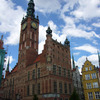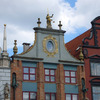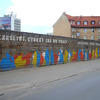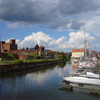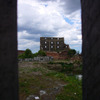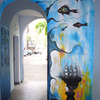Church Pressured To Name Agents
East European church leaders faced new pressure to name clergy who acted as communist agents after a Polish priest accused colleagues of spying on Pope John Paul II and a Hungarian cardinal was named as a one-time informer.
"Several informers still hold church positions," said Father Tadeusz Isakowicz-Zaleski, a former Solidarity union chaplain.
"Let's tell the truth about Karol Wojtyla's times," he said, referring to Pope John Paul by his given name. "It can't be such that almost everyone knows who the informers were, but it's only talked about on the quiet."
Speaking at a Feb. 7 press conference in Krakow, Poland, Father Isakowicz-Zaleski said he had seen names of clergy agents while reading his own secret police file. He said he believed revealing their names was essential during the Polish stage of Pope John Paul's canonization process.
However, his appeal was dismissed by a Krakow archdiocesan spokesman, Father Robert Neczek, who said many priests had already "submitted confessions of guilt" to their bishops.
"Krakow archdiocesan priests resent these latest media statements, which are creating an atmosphere of distrust and suspicion," Father Neczek told the Polish Press Agency Feb. 9. "Difficult issues like this from the previous era were and are always settled by bishops with their priests in a spirit of truth, openness and evangelical forgiveness."
Around 10 percent of Catholic clergy are believed to have acted as informers in communist-ruled Poland, although higher recruitment rates were recorded in some dioceses in the 1980s.
Last April, the country's National Remembrance Institute accused a Polish Dominican of spying on Pope John Paul for two decades in Rome; church sources denied the accusation.
In November, institute researchers released a 20-page secret police manual for agents who were assigned to watch the former pope when he was archbishop of Krakow before his 1978 election as pope.
At the press conference, Father Isakowicz-Zaleski said one clergy collaborator had given members of Poland's secret police a sketch of then-Cardinal Wojtyla's bedroom, while another, codenamed "Dyrektor," had submitted "highly detailed material" for more than 20 years while heading one of the future pontiff's archdiocesan curial departments.
"Hiding the existence of such a person doesn't serve the objective truth," said Father Isakowicz-Zaleski, whose remarks were carried Feb. 7 by Poland's Catholic news agency, KAI.
In 2000, several East European bishops' conferences, including those of Poland and Lithuania, issued statements of regret for clergy collaboration with the secret police under communism.
In March 2005, Slovakia's bishops announced plans to investigate clergy after claims that some former informers still held church offices, while bishops in neighboring Hungary asked forgiveness after a list of clergy-agents was published on the Internet.
In a Feb. 2 article in Hungary's Elet es Irodalom weekly, historian Krisztian Ungvary said secret police archives confirmed that Cardinal Laszlo Paskai, former archbishop of Esztergom-Budapest, had acted as an informer, codenamed "Tanar," rising to the rank of "secret agent" in 1973.
"Such terms indicated people who fully consented to cooperate with communist intelligence since they shared the regime's viewpoint," Ungvary said. "But the reports submitted by (Cardinal) Paskai contained no concrete information which could harm those whose activities he reported on. (The cardinal's) story shows it was possible to be a secret agent without necessarily being an abject person."
The secretary-general of Hungary's bishops' conference, Auxiliary Bishop Andras Veres of Eger, told Hungary's Catholic Magyar Kurir news agency Feb. 3 he was "not surprised" by the accusation against Cardinal Paskai, who retired in 2002 after 15 years as archbishop of Esztergom-Budapest and participated in the April election of Pope Benedict XVI.
He criticized Elet es Irodalom for running the disclosure before March parliamentary elections and said the church would ask a team of historians to investigate.

